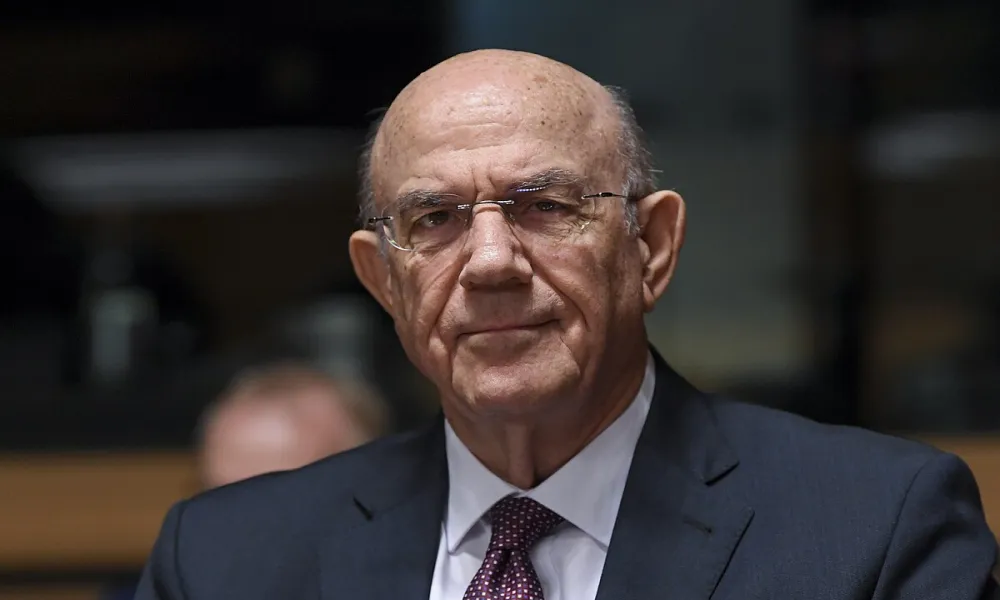Today’s videoconference between the European Commissioner for Energy and Housing, Dan Jørgensen, and the energy ministers of Cyprus and Greece - George Papanastasiou and Stavros Papastaurou, marks the European Commission’s most forceful push yet to advance the Great Sea Interconnector (GSI).
Last Friday, Cyprus formally transferred the licences of owner and operator for the GSI to ADMIE (the implementing body), following a decision by RAEK published in the Official Gazette. While this resolved a regulatory obstacle, it has not yet addressed the core issue: moving the project forward.
The GSI now stands at a critical inflection point. Sources close to Politis indicate that the burden now lies squarely with the Cypriot side, particularly the Minister of Finance, Makis Keravnos, to take decisive action.
The contentious €25 million
The single decision that will determine the project’s fate is whether Cyprus will disburse the €25 million due to ADMIE this year. That sum is essential to trigger the payment flows to the cable manufacturer, Nexans. Should the order be cancelled, so too will the project be lost.
More than that, the implications extend far beyond this specific cable. The decision will influence whether Cyprus can continue to retain a series of derogations and exemptions from EU energy law, granted precisely because the island is currently electrically isolated. If Brussels views Cyprus as responsible for cancelling a project meant to end that isolation, renewal of those exceptions may no longer be automatic. That scenario may lead to higher energy prices and pressures on the Cyprus Electricity Authority (EAC), including possible forced structural separation of its functions.
Moreover, losing the €657 million in EU funding for GSI, and possibly also putting funding for the Vasilikos project at risk, will seriously hamper Cyprus’ credibility and its ability to secure financing for other major state projects.
Rendezvous in Nicosia
Beyond today’s teleconference, the Commission is expected to seek in‑person meetings in Nicosia, targeting engagement at the ministerial level, especially focusing on the Finance Ministry. Officials such as Mechthild Wörsdörfer (Deputy Director-General of Energy) and Likasz Kolinsky (Director in DG Energy) have already made representations.
Brussels is closely tracking press coverage and developments. According to Politis sources, EU project officials are struggling to understand Cyprus’ stance: rhetorically supportive of the interconnector, yet failing to meet the obligations set out in the 20 September 2024 Memorandum of Understanding. That agreement binds Cyprus to annual payments of €25 million over five years as its share of the GSI financing scheme. The Commission had expected the first payment to be made by September.
That outstanding issue, funding the €25 million to ADMIE from the national budget is pivotal: it cannot be deferred without jeopardising the project. The logic within the Commission is clear: regardless of Cyprus’ internal hesitations, failure to meet obligations will result in project cancellation, permanent loss of the EU grant, and the potential clawback of funds already disbursed.
Commission services recognise that the disbursement depends on the Finance Ministry. Politis has learned that high-level officials from DG Energy may meet with Minister Keravnos to clarify his position and present the benefits of the project and its strategic importance for Cyprus. In effect, pressure is now squarely on him, he must explain to the Commission the objections and reservations he has expressed regarding GSI.
In response to Parliamentary Questions via CNA, a Commission spokesperson stressed: “We expect all parties to commit to the swiftest possible implementation of the project. Any further delay is to the detriment of all involved … the responsibility lies on all parties to honour their commitments.” For Brussels, the GSI is a matter of high strategic priority. “We will continue doing everything in our power to secure its realisation … enhancing interconnectivity helps reduce energy prices and aids the smoother integration of renewables,” the spokesperson added.
Exemptions under threat
The Commission positions the GSI as central to its broader ambition of lower energy costs and greater penetration of renewables across Europe. In her September 2025 State of the Union address, Commission President Ursula von der Leyen spoke of “Energy Highways” and the removal of eight “congestion points” in Europe’s electricity grids, one of which is Cyprus, still fully isolated from the EU’s internal electricity market.
Cyprus benefits from targeted EU exemptions (derogations) because it lacks a grid connection to Europe and has no domestic natural gas market. These exemptions affect both the design of its electricity market and the regulation of gas infrastructure and temporary crisis measures.
In electricity terms, the derogations allow Cyprus to operate outside Regulation 2019/943 until such time as its transmission system is linked with a member state. If the interconnector is cancelled, that derogation regime could be in jeopardy, and with it, the regulatory flexibility Cyprus has depended upon.
